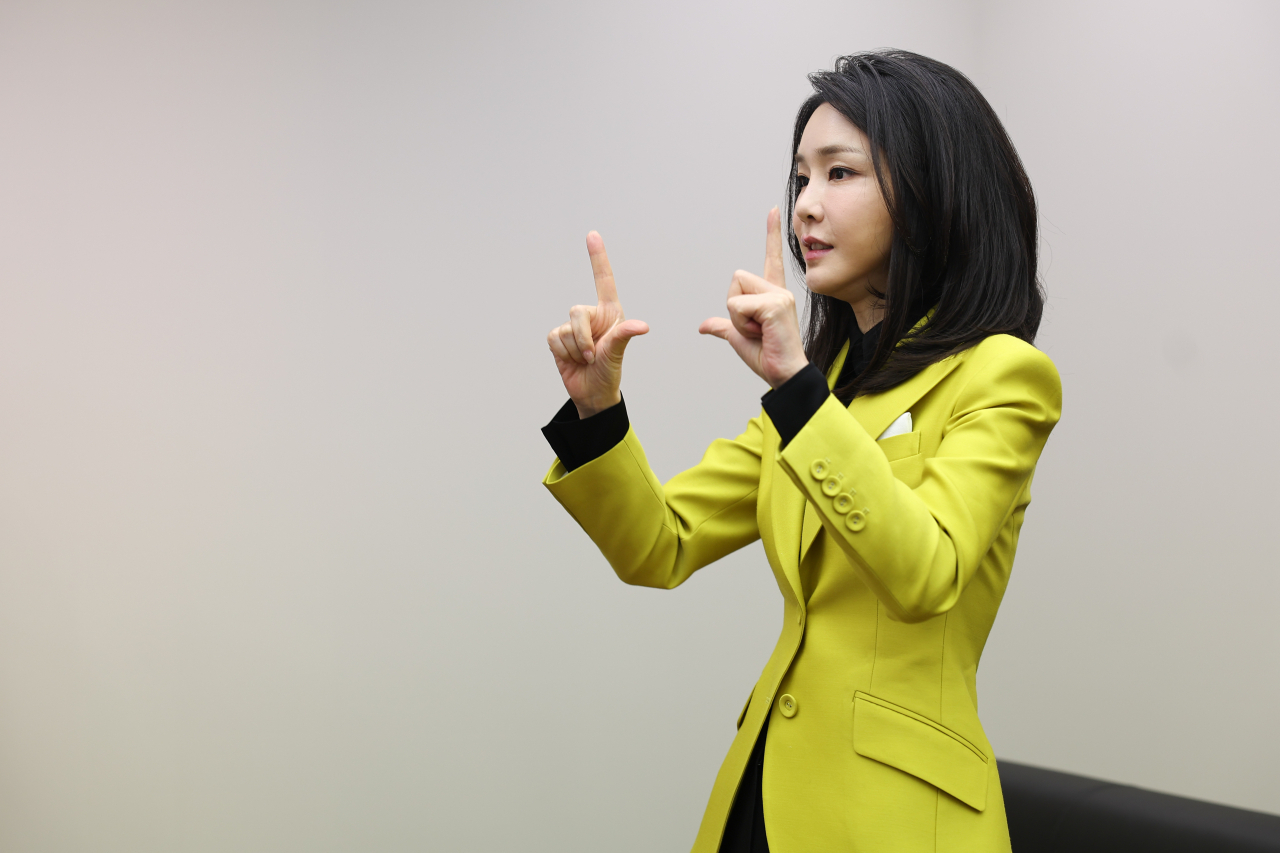 |
First lady Kim Keon Hee (Yonhap) |
The presidential office said Tuesday the opposition party was spreading “fake news” concerning first lady Kim Keon Hee's involvement in a stock manipulation scheme, saying her accounts were not deliberately used for the price inflation of Deutsche Motors stock and she was not the figure behind the scheme.
“In the course of the investigations and trials, dozens of people were intensively investigated, but not a single person stated that they had been in contact with or colluded with Kim regarding stock manipulation,” the office said in a statement. “As a result, there was no specific mention of Kim in the text of the criminal facts (in the ruling).”
The statement came after the first trial of the Deutsche Motors stock price manipulation recognized that accounts opened in the names of Kim and her mother were mobilized for stock manipulation.
Holding former Deutsche Motors Chairman Kwon Oh-soo guilty of violating the capital market law, the court recognized that her and her mother's accounts were among those used for stock price manipulation, leaving room for further investigations, according to legal experts and local reports.
However, Kim was not pinpointed as an accomplice in the case. Most such people who lent their accounts for the stock price manipulation were not prosecuted. Neither Kim not her mother was included in what the presidential office calls the "criminal facts" -- the description of the actual crimes committed.
After the ruling, the Democratic Party of Korea intensified its criticism of Kim, contending that she must be questioned by a special prosecutor.
Floor Leader Park Hong-geun said Tuesday Kim Keon Hee's name was mentioned more than 200 times in the indictment, more than 300 times in the trial process and 37 times in the court ruling. Kim’s mother was also mentioned 27 times in the ruling, but the prosecutors did not summon her, he said.
The presidential office pushed back the opposition’s claim, saying Kim cannot be seen as participating in the stock price manipulation just because she bought stocks or because her accounts were used in the scheme.
Admitting that Kim bought stocks on three days, and then offloaded them between Oct. 28 and Dec. 13 in 2010, the office said, “No matter how (the value of stocks) inflated, ‘three-day buying’ cannot be seen as involvement in stock price manipulation.”
“We express strong regret for the Democratic Party’s spreading fake news by distorting the content of the ruling,” it said.







